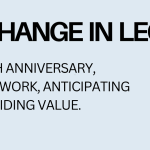 In a major new release for Juro, its contract collaboration platform can now read uploaded PDF contracts in order to extract and store key data within the platform.
In a major new release for Juro, its contract collaboration platform can now read uploaded PDF contracts in order to extract and store key data within the platform.
The new contract reader, which is just out of beta with customers including Skyscanner and Deliveroo, opens up Juro’s workflow to legacy contracts as well as those natively created by its machine-readable editor.
The contract reader uses machine learning to parse and extract data such as key dates, party and company names, and addresses, meaning they can be managed in terms of the likes of renewal reminders, approvals and further negotiation.
Speaking to Legal IT Insider about the release, CEO and co-founder Richard Mabey said: “Contracts are designed not to be easily managed – they are built by lawyers for lawyers and are largely uncollaborative; siloed and unstructured.
“We’re about rebuilding contracts for the end reader so that they are modular and machine readable. Rather than being in unstructured PDF form that you then have to pay people to read, why should they not be machine readable from the get-go?”
He adds: “We think of Juro not so much as contract management but as a contract data platform where everything is machine readable. The result of that is better collaboration and users don’t have to be lawyers.”
According to Mabey the contract reader functionality was released in the last couple of months and has just come out of beta, with customers such as Deliveroo and Skyscanner now migrating to a new version. He tells us: “We’ve been testing it for a long time.”
“The short story is that a load of providers are saying, ‘We make Microsoft Word more efficient’ and then you have to buy another tool because your contracts are unstructured and you don’t know what they say.
“If you stem the bleed you don’t need to use a Kira or Luminance. We started with automation and now this is a wider play. Clients say, ‘Great, we’ve stemmed the bleed for contracts that go through Juro, but what about other contracts or our 10,000 PDFs – this is where the machine learning functionality comes into play.”
After uploading the PDF using an OCR scan it becomes readable and Mabey says: “You can review a PDF and find all of these data points such as the date and rather than having to manually tag it the work is done for you. If you want to set up a renewal you get a reminder one week before in a email or Slack.
“Not only does Juro have a slick workflow but it records all the metadata so it becomes a data platform”
He adds: “What we’re doing is very narrow but we are saving clients having to repeat the task of manually tag contracts. It’s the whole package that’s key.
While OCR technology is far from new and other contract management platforms such as Seal Software and OpenText’s contract management platform include this kind of ability to import and read legacy contracts, Juro says its USP is that it is building out from its collaboration suite.
“This functionality in Juro augments our collaboration suite,” said Mabey. “So, for example, the metadata feeds our analytics, which can be tied to key data reminders, and can be pushed through approval workflows.
“It is really what sits alongside it that’s important. To become a true system of record, templates are not enough, signatures are not enough, data extraction is not enough. It’s tying these things together in a user-friendly way that matters.”
Juro, which is headquartered in London, was founded in 2016 by Mabey and Pavel Kovalevich. Since then has raised almost $3m in funding from the likes of Point Nine Capital, Seedcamp, the founders of TransferWise, Indeed and Gumtree, as well as Ned Staple, general counsel of Zoopla.
While it is exempt from filing full accounts at Companies House, the limited accounts filed in June show that in the year to 31 December Juro had current assets of £1,139,958 compared with £369,769 in the past financial year. Assets less current liabilities were £1,007,864 compared with £250,248 in 2017.







